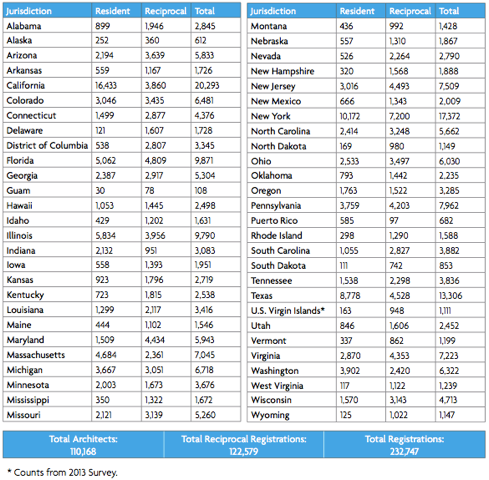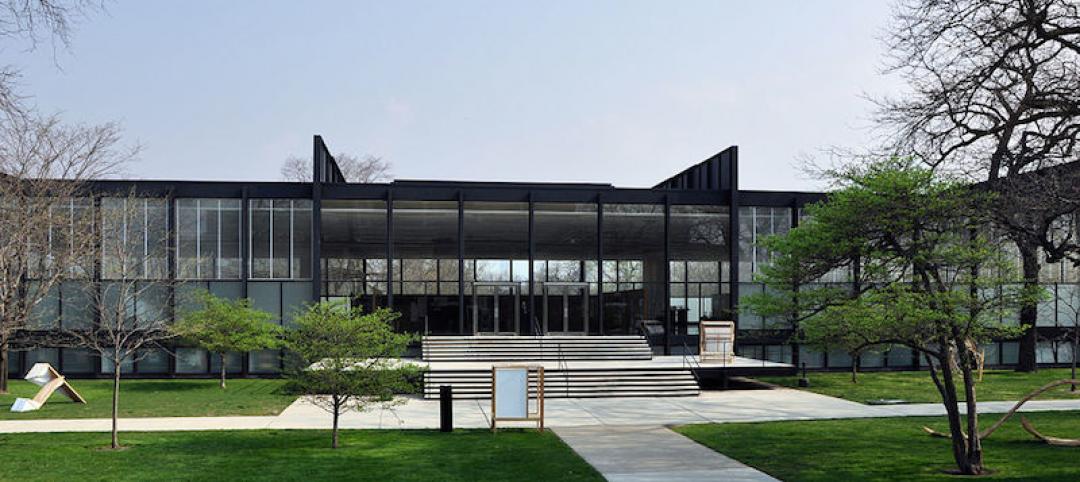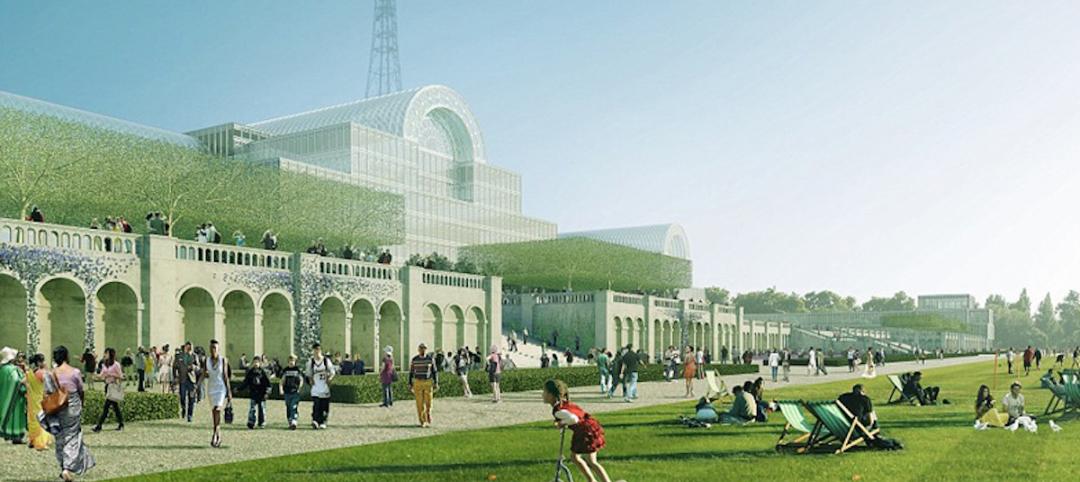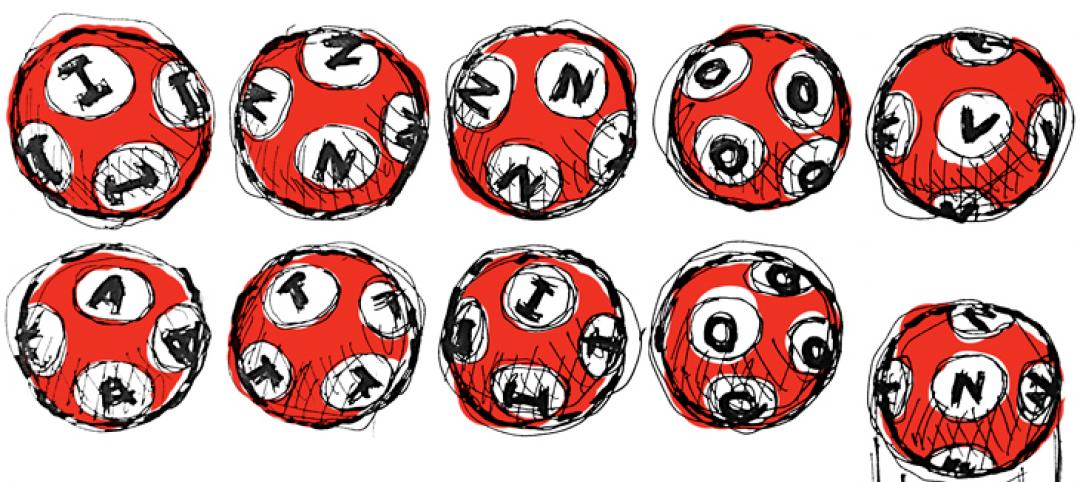There are currently 110,168 architects in the United States, according to the 2015 Survey of Architectural Registration Boards.
This marks the fourth consecutive year of growth and a 2% increase from 2014. Conducted annually by the National Council of Architectural Registration Boards (NCARB), the survey, combined with other key indicators, suggests the profession is healthy and growing.
The number of professionals working toward licensure reached an all-time high in 2015, with more than 41,500 candidates either taking the Architect Registration Examination (ARE) and/or reporting experience hours. This data, which will be available in July’s 2016 edition of NCARB by the Numbers, points to a growing interest among the next generation to become an architect.
“While there are a variety of factors that contribute to the health of the profession, these two trends point to a bright future,” said NCARB CEO Michael Armstrong. “As a record number of candidates work toward licensure, NCARB will continue to ensure our programs remain modern and inclusive, yet rigorous.”
The survey also reveals U.S. architects hold 122,579 (out-of-state) licenses, a 3% increase from 2014.
“As the economy improves, architects may be expanding their businesses across state lines,” said Armstrong. “We’ve also seen a growth in the number of architects who hold an NCARB Certificate, which facilitates reciprocal licensure.”
NCARB collects data on resident and reciprocal licenses from its 54 Member Boards, which includes the 50 states, the District of Columbia, Guam, Puerto Rico, and the U.S. Virgin Islands. The survey reflects registration data from January to December 2015.
To learn more about the Survey of Architectural Registration Boards, visit www.ncarb.org.

Related Stories
Sports and Recreational Facilities | Mar 11, 2015
Foster + Partners wins bid for 2022 World Cup centerpiece stadium in Qatar
Norman Foster described the design as “an exciting step forward in stadium design—it will be the first to break the mold of the free-standing suburban concept, and instead anticipates the grid of this future city.”
Architects | Mar 10, 2015
German architect Frei Otto named 2015 Pritzker Architecture Prize laureate
The news comes a day after the visionary architect, 89, died in his native Germany.
Modular Building | Mar 10, 2015
Must see: 57-story modular skyscraper was completed in 19 days
After erecting the mega prefab tower in Changsha, China, modular builder BSB stated, “three floors in a day is China’s new normal.”
Sponsored | Metals | Mar 10, 2015
Metal Building Systems: A Rising Star in the Market
A new report by the Metal Building Manufacturer's Association explains the entity's efforts in refining and extending metal building systems as a construction choice.
Retail Centers | Mar 10, 2015
Retrofit projects give dying malls new purpose
Approximately one-third of the country’s 1,200 enclosed malls are dead or dying. The good news is that a sizable portion of that building stock is being repurposed.
Retail Centers | Mar 10, 2015
Orlando's Skyscraper to be world's tallest roller coaster
The Skyscraper is expected to begin construction later this year, and open in 2016. It will stand at 570 feet.
Museums | Mar 9, 2015
Architecture based on astronomy principles for new planetarium in Shanghai
The ancient Chinese civilization left some of the earliest records of humans studying the stars and skies. To exhibit this long history, a new planetarium and astronomy museum is planned for construction in Shanghai.
Architects | Mar 9, 2015
Study explores why high ceilings are popular
High ceilings give us a sense of freedom, new research finds
Cultural Facilities | Mar 9, 2015
London council nixes plans to rebuild the Crystal Palace
Plans for the new Crystal Palace Park were scrapped when the city and the project's developer could come to an agreement before the 16-month exclusivity contract expired.
Office Buildings | Mar 7, 2015
Chance encounters in workplace design: The winning ticket to the innovation lottery?
The logic behind the push to cultivate chance encounters supposes that innovation is akin to a lottery. But do chance encounters reliably and consistently yield anything of substance?

















